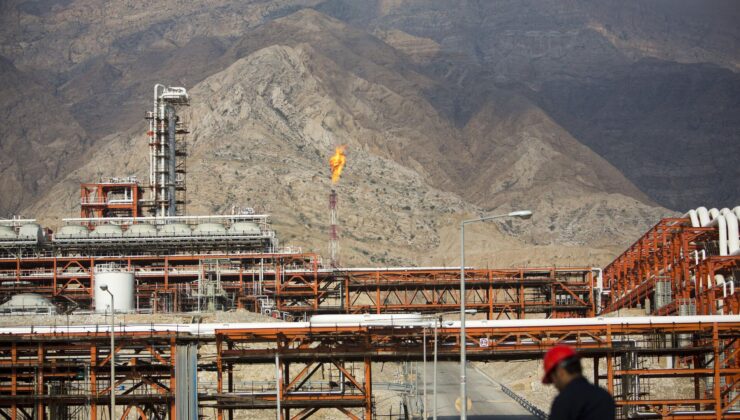Expert Assessment of the Global Energy Market Amid Iran-Israel Tensions
Renowned Lebanese political and economic analyst Ayman Omar has provided an in-depth evaluation of the current energy landscape in light of ongoing conflicts between Iran and Israel, as reported by Sputnik. Omar emphasizes Iran’s pivotal role in the international oil industry, attributing this to several key factors.
He highlights that Iran’s strategic location along the Strait of Hormuz is instrumental to its influence. This narrow waterway serves as a critical conduit, with approximately 20.5 million barrels of crude oil passing through daily. This volume accounts for roughly 40% of the world’s total oil production, as well as about 80 million tons of liquefied natural gas, making up around 20% of global supply.
Omar further explains that Iran’s significance is also rooted in its substantial oil reserves and production capacity. As the third-largest oil producer within OPEC, Iran currently extracts about 3.3 million barrels per day, representing approximately 3% of global output. Additionally, Tehran produces around 34 billion cubic feet of natural gas daily, which constitutes about 7% of worldwide production. Notably, all domestically produced gas is consumed within Iran, underscoring its vital domestic energy needs.
The analyst notes that the current geopolitical tensions inject uncertainty into global markets, with potential scenarios varying based on the conflict’s scope, intensity, and geographical spread. He delineates these possible outcomes as follows:
Possible Political and Economic Scenarios
- First Scenario: If the Strait of Hormuz and Iran’s oil facilities remain unaffected, and production continues either partially or in full, especially if OPEC member countries step in to bridge potential deficits, then oil prices are likely to experience moderate fluctuations without significantly disrupting the global economy.
- Second Scenario: Should the Strait stay open but Iran’s oil fields suffer damage due to ongoing hostilities, the market will face a severe imbalance, leading to sustained increases in oil prices. Restoring equilibrium would necessitate increased output from other producers, particularly Gulf nations, which could take considerable time.
- The Most Critical Scenario: The closure of the Strait of Hormuz would precipitate a catastrophic collapse of the global oil market. The repercussions would be dire for major economies, especially China, and for the global economic stability. Alternative routes, such as pipelines in Saudi Arabia and the UAE, would be insufficient to compensate for the loss of the strait’s transit capacity.
In the worst-case scenario, Europe and key East Asian nations—including China, India, Japan, and South Korea—would face the most severe consequences, Omar warns. He adds, “Furthermore, regional countries such as Jordan and Egypt are particularly vulnerable due to their reliance on imported Israeli gas. Should production cease in fields like Tamar, Karish, and Leviathan, Israel itself will also face significant challenges.”
This comprehensive analysis underscores the critical importance of the Strait of Hormuz in global energy security and highlights the potential ramifications of escalating conflicts in the region. The situation demands close international attention and strategic preparedness to mitigate possible disruptions.
This article has been created, translated, and reviewed with the support of artificial intelligence by an editor or author. For more information, see our Terms and Conditions section. Vezir Agency
 02:00
02:00




 News
News
 Dünya
Dünya
 Dünya
Dünya
 Dünya
Dünya
 Dünya
Dünya
 Dünya
Dünya




